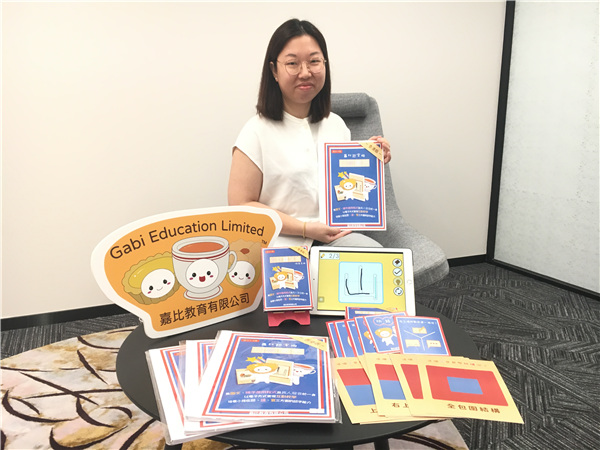 |
|
Fung Ka-yan, founder of Gabi, a Hong Kong-based education company set up to help students with learning difficulties. [Photo provided to China Daily] |
"We are privileged to have had healthy participation and re-engagement with our YSE alumni from China over the years," Chia says.
To date, the YSE program has had 65 Chinese alumni from various parts of the country, including Shanghai, Hangzhou, Shenzhen and Chengdu.
There will be six winning teams that will receive funding of up to 100,000 yuan each this year.
"We work with leading social entrepreneurs and seasoned market players to identify teams that present the strongest business pitches, showcasing significant social impact, promise for sustainability and scalability of the business model," Chia says.
China Youth of Tomorrow is the other Chinese company that made the shortlist this year.
"We are very grateful for this precious opportunity and would love to give back if we are successful in the future," says Xia Ye, co-founder of CYOT.
"The social-enterprise industry in China is booming in recent years but it still lacks public awareness and professional practitioners in this field. We truly hope that our knowledge and experience can help other organizations."
Four out of five of CYOT's founders are the first college graduates in their families.
"We have gone through feelings of helplessness, confusion and frustration during our time in college and the first years of our careers without cultural support and guidance from our families," says Xia, 31.
"Therefore, we understand how important a mentor can be for these college students."
The 2017 report on China's education by the 21st Century Education Research Institute and the Social Sciences Academic Press showed that many such college students are from low-income families with limited economic, social and cultural resources. The lack of cultural capital, soft skills, life and career coaching are a major obstacle for the students from underprivileged families.
"Therefore, we want to empower them and help with the last mile of achieving social mobility," Xia adds.
CYOT, founded in January 2019, helps young people, who are the first in their families to attend college, via one-on-one career mentor-mentee matching and with applications for overseas universities.
It has over 1,200 registered volunteers in more than 22 cities globally, as well as over 10 key opinion leaders and 200 influential mentors. The students it reaches are mostly in Beijing, Shanghai, Guangzhou and Shenzhen where universities are concentrated.
Its offline events are held in first-tier cities in China while online events are free and open to all, according to Xia.
Many graduates are facing problems finding desirable jobs this year due to the economic downturn caused by the pandemic.
"We will pay more attention to students affected by the pandemic and provide them with early-career and education plans to help them build market competitiveness," she says.
Through the YSE program, Xia says her team learned how they should process and manage the organization.
"It is very important to establish a traceable system and plan business goals in advance," she says.
If CYOT gets the fund, Xia says it would first be used to hire one to three full-time employees and continue to grow the volunteer team and expand the scope of help in 2021.
"We plan to help at least 120 students, partner with at least 50 institutions, and recruit 1,500 volunteers and 250 influential mentors," she says.